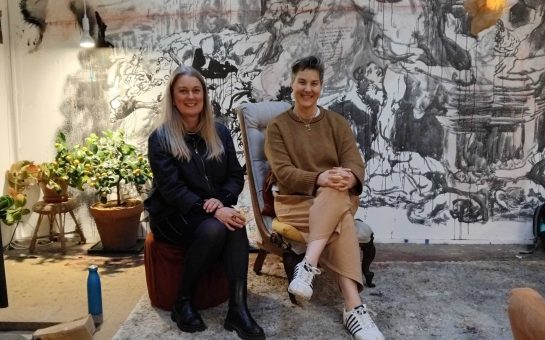The global casino industry is expanding rapidly, both online and through major resorts in Las Vegas, Macau, Singapore, and beyond.
From intuitive mobile platforms to immersive in-person experiences, innovation is changing how Londoners play, and importantly, how they feel about gambling.
Yet for all this growth and glamour, not everyone is fully convinced.
The industry still carries baggage from its shadier past, when London players often felt like they were simply feeding money into a black box with little transparency or care for their wellbeing.
While tighter regulations have led to better conversion rates and safer player environments, today’s operators are doing far more than simply ticking compliance boxes.
That’s the challenge casinos are now confronting in shifting player attitudes from suspicion to trust, and from isolation to inclusion.
As more players move away from traditional land-based venues and turn to new online casino platforms, they are experiencing some of the best product offerings from leading operators.
With this shift, it’s crucial for London players to know their trust can be assured.
Casinos are responding by rethinking how they engage with players, using tools that promote safety and transparency, and exploring new models that allow players to become actual stakeholders.
In this article, we explore how the industry is changing the player experience for Londoners and rebuilding trust through innovation and player empowerment.
Owning a piece of the house
In traditional land-based casinos, loyalty has long been rewarded with perks: room upgrades, free meals, VIP lounge access, and tickets to shows.
These rewards build a sense of inclusion and players feel recognised and part of something more than just the tables.
But while these benefits foster short-term satisfaction, they rarely give players a deeper sense of connection to the casino itself.
That’s where a new idea is starting to emerge, one rooted in the digital world.
A small but growing number of Web3-based casinos are experimenting with player ownership.
Instead of simply placing bets, users can hold tokens that represent a share in the platform’s long-term success, often tied to revenue or growth metrics.
This shifts the experience from “me versus the house” to something more collaborative.
Players who own even a small part of the system may feel more aligned with it.
Wins don’t just feel lucky, they feel earned.
Losses, while still disappointing, are softened by a sense of shared purpose and participation.
The model is still in its early stages, mostly limited to blockchain-native platforms.
But it taps into something powerful: players want to feel like stakeholders, not just customers.
Ownership, even if partial, digital, and symbolic, helps build that trust.
And as the casino online sector continues to grow, London players will increasingly look for platforms that offer not just entertainment, but genuine connection and transparency.
Tokens that reward participation, not just spend
Gone are the days when casino loyalty meant collecting points for a free drink.
Modern programmes, like those offered by BetMGM and Caesars, create genuine two-way relationships.
Players earn room upgrades at partner hotels, priority access to restaurants, VIP passes to concerts and sporting events, and even credits toward flights and holidays.
These programmes work because they extend the casino experience beyond the gaming floor or app.
They make players feel recognised not just for how much they spend, but for their ongoing relationship with the brand.
When a player gets upgraded to a suite in Vegas or receives complimentary tickets to a West End show, gambling starts feeling less like a risky transaction and more like membership in an exclusive club.
It’s a subtle but important shift.
Rather than chasing short-term perks, players are encouraged to think long term.
The incentive structure isn’t just about more play, it’s about deeper engagement.
The casino becomes less like a service provider and more like a digital community, one where players feel their presence actually matters.
The psychological impact is significant: players begin to see their gambling as part of a broader lifestyle choice rather than an isolated activity they might feel guilty about.
Digital ownership
Web3 technology is transforming how London players engage with online casinos by granting true ownership of digital assets.
Unlike traditional games where players only participate, Web3 leverages blockchain to create unique digital items such as NFTs (non-fungible tokens) and in-game tokens that players can own, trade, or sell independently.
For instance, some casinos offer NFTs that serve as exclusive passes to special tables or high-stakes tournaments.
Players might hold a rare digital poker chip unlocking unique games or tokens that grant access to customised slot machines.
Because these assets are secured on the blockchain, their identity and value are verifiable and permanent, allowing players to carry them across platforms or trade them in secondary markets.
This new dimension of ownership adds depth to the gaming experience.
Instead of merely engaging in transient bets, players build a portfolio of digital collectibles that carry lasting significance and potential future value.
This shift helps create a more meaningful connection to the casino ecosystem beyond the immediate gameplay.
Responsible gaming built into every click
Today’s leading platforms don’t treat responsible gaming as an afterthought buried in the settings menu. Instead, they weave safety features directly into the user experience.
Real-time spending dashboards show players exactly where their money is going, gentle nudges appear after extended sessions, and support resources are always one tap away.
When operators make it easier to step back than to keep spending, they signal a long-term view that values player wellbeing over short-term profit.
By opening the black box, these casinos reduce uncertainty and suspicion.
When players understand how a game works, and know it hasn’t been rigged behind the scenes, they’re more likely to keep playing and less likely to walk away feeling cheated.
A new type of relationship
The future of gambling for Londoners may not be defined by bigger jackpots or flashier graphics but by how players feel when interacting with a platform.
Do they feel like they belong? Are they respected, rewarded, and protected? Do they trust the platform to prioritise their wellbeing?
If casinos can make London players feel like insiders rather than outsiders, participants rather than targets, they are not just creating better platforms, they are reshaping the perception of an entire industry.
Feature image: Free to use from Unsplash





